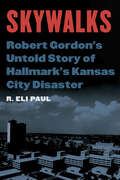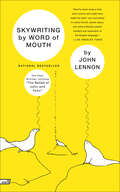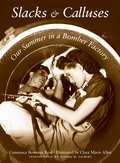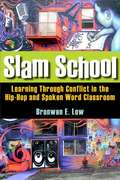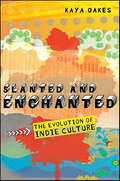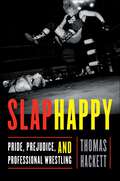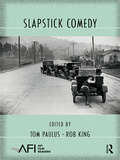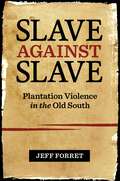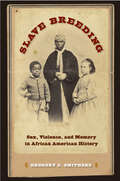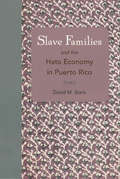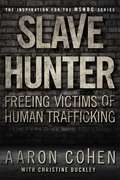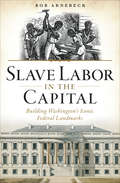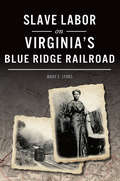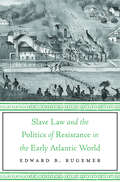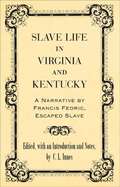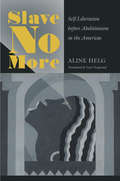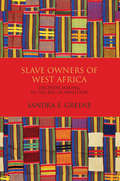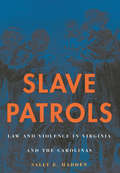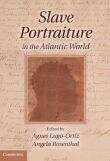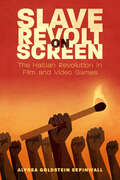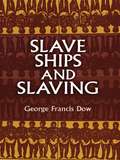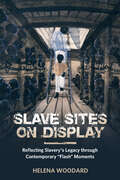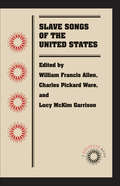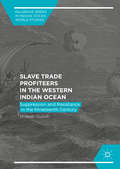- Table View
- List View
Skywalks: Robert Gordon's Untold Story of Hallmark's Kansas City Disaster
by R. Eli PaulIn 1981 the suspended walkways—or &“skywalks&”—in Kansas City&’s Hyatt Regency hotel fell and killed 114 people. It was the deadliest building collapse in the United States until the fall of New York&’s Twin Towers on 9/11. In Skywalks R. Eli Paul follows the actions of attorney Robert Gordon, an insider to the bitter litigation that followed. Representing the plaintiffs in a class action lawsuit against those who designed, built, inspected, owned, and managed the hotel, Gordon was tenacious in uncovering damaging facts. He wanted his findings presented before a jury, where his legal team would assign blame from underlings to corporate higher-ups, while securing a massive judgment in his clients&’ favor. But when the case was settled out from under Gordon, he turned to another medium to get the truth out: a quixotic book project that consumed the rest of his life. For a decade the irascible attorney-turned-writer churned through a succession of high-powered literary agents, talented ghost writers, and New York trade publishers. Gordon&’s resistance to collaboration and compromise resulted in a controversial but unpublishable manuscript, &“House of Cards,&” finished long after the public&’s interest had waned. His conclusions, still explosive but never receiving their proper attention, laid the blame for the disaster largely at the feet of the hotel&’s owner and Kansas City&’s most visible and powerful corporation, Hallmark Cards Inc. Gordon gave up his lucrative law practice and lived the rest of his life as a virtual recluse in his mansion in Mission Hills, Kansas. David had fought Goliath, and to his despair, Goliath had won. Gordon died in 2008 without ever seeing his book published or the full truth told. Skywalks is a long-overdue corrective, built on a foundation of untapped historical materials Gordon compiled, as well as his own unpublished writings.
Skywriting by Word of Mouth
by John LennonJohn Lennon wrote Skywriting by Word of Mouth, an impressive collection of writings and drawings, during Yoko Ono's pregnancy with Sean, and always planned to have it published. The book's publication was a wish that seemed to end with Lennon's assassination in 1980 and the theft of the manuscript from the Lennons' home in 1982. When it was recovered and first published in 1986, Skywriting received immediate critical and popular acclaim. Filled with Lennon's extraordinary creative powers and lavishly illustrated with his own drawings, the collection reveals his fertile creative spirit up close and in full force. Included in Skywriting are "Two Virgins," written when the public learned that John and Yoko were living together as husband and wife, and John's only autobiography, "The Ballad of John and Yoko." In addition there are notes on his falling in love with Yoko, the breakup of the Beatles, his persecution by U.S. authorities, and his withdrawal from public life. This is a book with John Lennon's spirit on every page—a spirit the world needs to remember.
Slacks and Calluses: Our Summer in a Bomber Factory
by Clara Marie Allen Constance BowmanIn 1943 two spirited young teachers decided to do their part for the war effort by spending their summer vacation working the swing shift on a B-24 production line at a San Diego bomber plant. Entering a male-dominated realm of welding torches and bomb bays, they learned to use tools that they had never seen before, live with aluminum shavings in their hair, and get along with supervisors and coworkers from all walks of life. They also learned that wearing their factory slacks on the street caused men to treat them in a way for which their "dignified schoolteacher-hood" hadn't prepared them. At times charming, hilarious, and incredibly perceptive, Slacks and Calluses brings into focus an overlooked part of the war effort, one that forever changed the way the women were viewed in America.From the Trade Paperback edition.
Slam School: Learning Through Conflict in the Hip-hop and Spoken Word Classroom
by Bronwen E. LowIn this study, Low (education, McGill U. , Canada) relates how a white teacher implemented the study of hip-hop and spoken word culture into urban high school language arts classes, which she co-taught and helped develop the curriculum for. She analyzes the dynamics of teaching and learning in these classes to argue that the reasons that teachers and administrators resist introducing hip-hop into curriculum--its complex issues of gender, violence, sexuality, materialism, race, and language--are what make it important pedagogically. She focuses on African American youth in interaction with white youth, teachers, and administrators, describing the student's exploration of poetry performance and writing and their experiences with the language of the hip-hop culture. Annotation ©2011 Book News, Inc. , Portland, OR (booknews. com)
Slanted and Enchanted: The Evolution of Indie Culture
by Kaya OakesA lively examination of the spirit and practices that have made the indie movement into a powerful cultural phenomenonYou know the look: skinny jeans, Chuck Taylors, perfectly mussed bed-head hair; You know the music: Modest Mouse, the Shins, Pavement. You know the ethos: DIY with a big helping of irony. But what does it really mean to be "indie"? As popular television shows adopt indie soundtracks and the signature style bleeds into mainstream fashion, the quirky individuality of the movement seems to be losing ground. In Slanted and Enchanted, Kaya Oakes demonstrates how this phase is part of the natural cycle of a culture that reinvents itself continuously to preserve its core ideals of experimentation, freedom, and collaboration. Through interviews and profiles of the artists who have spearheaded the cause over the years—including Mike Watt, David Berman, Kathleen Hanna, and Dan Clowes—Oakes examines the collective creativity and cross-genre experimentation that are the hallmarks of this popular lifestyle trend. Her visits to music festivals, craft fairs, and smaller collectives around the country round out the story, providing a compelling portayal of indie life on the ground. Culminating in the current indie milieu of music, crafting, style, art, comics, and zines, Oakes reveals from whence indie came and where it will go next.
Slaphappy: Pride, Prejudice, and Professional Wrestling
by Thomas HackettSlaphappy is reporter Thomas Hackett's penetrating look at the world of professional wrestling, for those who love the spectacle and for the sport's skeptics and the uninitiated. Through interviews with wrestlers, promoters, and fans, Hackett explores the full range of issues that swirl around wrestling culture -- fame, masculinity, violence, aggression, performance, and play. Among the lessons of professional wrestling is that deceit is a fundamental fact of American life. And yet, paradoxically, the one thing wrestling isn't is dishonest. Although wrestlers play pretend, wrestling itself doesn't pretend to be anything other than what it is -- fantastically absurd, a very American kind of madness. Celebrity-obsessed, pathologically narcissistic, murderously competitive, it both epitomizes and parodies the delusional egoism at the heart of the culture.More than that, wrestling provides its fans and performers a medium for thinking about "getting over" in America today. This spectacle of excess may be the apotheosis of American imbecility, but it is also defiant, hopeful, liberating, and unifying -- a throwback to the raucous pleasures of early theater. Fans aren't detached connoisseurs, looking satirically down on life, concealing their anxieties in the cold comforts of irony. They are total participants in a carnival of their own making, shouting epithets, throwing chairs, expatiating their worries in a crowd's triumphant foolishness.It is, Slaphappy concludes, all the stuff of human culture. Where does fantasy end and reality begin? Where does the performance stop and life take over? Writing with affection and discernment, Hackett gets deep into the culture, discovering that the make-believe competition of wrestling is indeed "real" for millions of young men -- real in the sense that something real and important is at stake: their worth as men.
Slapstick Comedy (AFI Film Readers)
by Tom PaulusFrom Chaplin’s tramp to the Bathing Beauties, from madcap chases to skyscraper perils, slapstick comedy supplied many of the most enduring icons of American cinema in the silent era. This collection of fourteen essays by prominent film scholars challenges longstanding critical dogma and offers new conceptual frameworks for thinking about silent comedy’s place in film history and American culture. The contributors discuss a broad range of topics including the contested theatrical or cinematic origins of slapstick; the comic spectacle of crazy technology and trick stunts; the filmmakers who shaped the style of early slapstick; and comedy’s implications for theories of film form and spectatorship. This volume is essential reading for anyone seeking to understand the origins and continued importance of a film genre at the heart of American cinema from its earliest days to today.
Slave Against Slave: Plantation Violence in the Old South
by Jeff ForretIn the first-ever comprehensive analysis of violence between slaves in the antebellum South, Jeff Forret challenges persistent notions of slave communities as sites of unwavering harmony and solidarity. Though existing scholarship shows that intraracial black violence did not reach high levels until after Reconstruction, contemporary records bear witness to its regular presence among enslaved populations. Slave against Slave explores the roots of and motivations for such violence and the ways in which slaves, masters, churches, and civil and criminal laws worked to hold it in check. Far from focusing on violence alone, Forret's work also adds depth to our understanding of morality among the enslaved, revealing how slaves sought to prevent violence and punish those who engaged in it. Forret mines a vast array of slave narratives, slaveholders' journals, travelers' accounts, and church and court records from across the South to approximate the prevalence of slave-against-slave violence prior to the Civil War. A diverse range of motives for these conflicts emerges, from tensions over status differences, to disagreements originating at work and in private, to discord relating to the slave economy and the web of debts that slaves owed one another, to courtship rivalries, marital disputes, and adulterous affairs. Forret also uncovers the role of explicitly gendered violence in bondpeople's constructions of masculinity and femininity, suggesting a system of honor among slaves that would have been familiar to southern white men and women, had they cared to acknowledge it. Though many generations of scholars have examined violence in the South as perpetrated by and against whites, the internal clashes within the slave quarters have remained largely unexplored. Forret's analysis of intraracial slave conflicts in the Old South examines narratives of violence in slave communities, opening a new line of inquiry into the study of American slavery.
Slave Breeding: Sex, Violence, and Memory in African American History
by Gregory D. SmithersFor over two centuries, the topic of slave breeding has occupied a controversial place in the master narrative of American history. From nineteenth-century abolitionists to twentieth-century filmmakers and artists, Americans have debated whether slave owners deliberately and coercively manipulated the sexual practices and marital status of enslaved African Americans to reproduce new generations of slaves for profit.In this bold and provocative book, historian Gregory Smithers investigates how African Americans have narrated, remembered, and represented slave-breeding practices. He argues that while social and economic historians have downplayed the significance of slave breeding, African Americans have refused to forget the violence and sexual coercion associated with the plantation South. By placing African American histories and memories of slave breeding within the larger context of America’s history of racial and gender discrimination, Smithers sheds much-needed light on African American collective memory, racialized perceptions of fragile black families, and the long history of racially motivated violence against men, women, and children of color.
Slave Country: American Expansion and the Origins of the Deep South
by Adam RothmanSlave Country tells the tragic story of the expansion of slavery in the new United States. In the wake of the American Revolution, slavery gradually disappeared from the northern states and the importation of captive Africans was prohibited. Yet, at the same time, the country's slave population grew, new plantation crops appeared, and several new slave states joined the Union. Adam Rothman explores how slavery flourished in a new nation dedicated to the principle of equality among free men, and reveals the enormous consequences of U.S. expansion into the region that became the Deep South. Rothman maps the combination of transatlantic capitalism and American nationalism that provoked a massive forced migration of slaves into Louisiana, Alabama, and Mississippi. He tells the fascinating story of collaboration and conflict among the diverse European, African, and indigenous peoples who inhabited the Deep South during the Jeffersonian era, and who turned the region into the most dynamic slave system of the Atlantic world. Paying close attention to dramatic episodes of resistance, rebellion, and war, Rothman exposes the terrible violence that haunted the Jeffersonian vision of republican expansion across the American continent. Slave Country combines political, economic, military, and social history in an elegant narrative that illuminates the perilous relation between freedom and slavery in the early United States. This book is essential reading for anyone interested in an honest look at America's troubled past.
Slave Families and the Hato Economy in Puerto Rico
by David M. StarkScholarship on slavery in the Caribbean frequently emphasizes sugar and tobacco production, but this unique work illustrates the importance of the region’s hato economy—a combination of livestock ranching, foodstuff cultivation, and timber harvesting—on the living patterns among slave communities. David Stark makes use of extensive Catholic parish records to provide a comprehensive examination of slavery in Puerto Rico and across the Spanish Caribbean. He reconstructs slave families to examine incidences of marriage, as well as birth and death rates. The result are never-before-analyzed details on how many enslaved Africans came to Puerto Rico, where they came from, and how their populations grew through natural increase. Stark convincingly argues that when animal husbandry drove much of the island’s economy, slavery was less harsh than in better-known plantation regimes geared toward crop cultivation. Slaves in the hato economy experienced more favorable conditions for family formation, relatively relaxed work regimes, higher fertility rates, and lower mortality rates.
Slave Hunter: One Man's Global Quest to Free Victims of Human Trafficking
by Aaron Cohen Christine BuckleyFrom living the rock star life to wading through the world's war zones, refugee camps, and brothels, Aaron Cohen left behind his closest friends, his dying father, and his partnership with a legendary musician to take on treacherous rescue missions in search of modern-day slaves.
Slave Labor in the Capital: Building Washington's Iconic Federal Landmarks
by Bob ArnebeckThe little-known history of how enslaved African Americans contributed to the building of the White House and other landmarks—includes illustrations. In 1791, President George Washington appointed a commission to build the future capital of the nation. Workers flocked to the city—but the commission found that paying masters of faraway Maryland plantations sixty dollars a year for their slaves made it easier to keep their payroll low. In 1798, half of the two hundred workers building the two most iconic Washington landmarks, the Capitol and the White House, were slaves. They moved stones for Scottish masons and sawed lumber for Irish carpenters. They cut trees and baked bricks. These unschooled young black men left no memoirs. Based on his research in the commissioners&’ records, author Bob Arnebeck describes their world of dawn-to-dusk work, salt pork and corn bread, white scorn and a kind nurse, and the moments when everything depended on their skills.
Slave Labor on Virginia's Blue Ridge Railroad (American Heritage)
by Mary E. LyonsBetween 1849 and 1859, Virginia raced to pierce the Blue Ridge Mountains by rail and reach the Ohio River. At least 300 enslaved people labored involuntarily toward that goal, along with 1,500 Irish immigrants. The state leased the labor of enslaved Virginians from local slaveholders, including four connected with nearby University of Virginia. Blue Ridge Tunnel and Blue Ridge Railroad historian Mary E. Lyons explored hundreds of primary documents to write the first nonfiction book about slave labor on a specific antebellum railroad. She shares hundreds of enslaved people's names, traces where they toiled along the line and describes their backbreaking--and sometimes fatal--tasks.
Slave Law and the Politics of Resistance in the Early Atlantic World
by Edward B. RugemerEdward Rugemer’s comparative history, spanning 200 years, reveals the political dynamic between slaves’ resistance and slaveholders’ power in two prosperous slave economies: Jamaica and South Carolina. This struggle led to the abolition of slavery through a law of British Parliament in one case and through violent civil war in the other.
Slave Life in Virginia and Kentucky: A Narrative by Francis Fedric, Escaped Slave (Library of Southern Civilization)
by C. L. InnesIn 1854, faced with the threat of yet another brutal beating, a fifty-year-old slave in Mason County, Kentucky, decided to try again to escape. His first attempt had ended in his near starvation as he hid for nine weeks in a swamp, before hunger compelled him to return to his master. This time the slave sought the help of a neighbor with abolitionist sympathies, and he joined the hundreds of other fugitive slaves fleeing across the Ohio River and north to Canada on the Underground Railroad. After his arrival in Toronto he discarded his master's surname (Parker), renamed himself Francis Fedric, and married an Englishwoman. In 1857, he traveled with his wife to Great Britain, where he lectured on behalf of the antislavery cause and published two versions of his life story. Born in Virginia circa 1805, Francis Fedric was not unlike thousands of other African Americans who escaped slavery in the southern states and sought refuge in Britain. Many of his fellow ex-slaves also joined the abolitionist lecture circuit and published memoirs to support both the cause and themselves. Addressed to a British audience, these memoirs constitute a distinctive subgenre of the slave narrative, and an essential continuation of the narrative tradition established in England by Olaudah Equiano, Ottobah Cugoano, and Mary Prince. The first of Fedric's two memoirs, Life and Sufferings of Francis Fedric, While in Slavery: An Escaped Slave after 51 Years in Bondage (1859), offers a brief but vivid and dramatic twelve-page description of his escape. Slave Life in Virginia and Kentucky; or, Fifty Years of Slavery in the Southern States of America (1863) provides a much more detailed account of life as a slave and of plantation culture in the southern states. Together the two works present a mesmerizing and distinct perspective on slavery in the South. Amazingly, these narratives, among the most interesting of the genre, remained out of print for nearly a hundred and fifty years. Collected here for the first time and meticulously edited by C. L. Innes, Slave Life in Virginia and Kentucky: A Narrative by Francis Fedric, Escaped Slave includes a contextual introduction, substantial biographical information on Fedric, and extensive annotations that situate and illuminate his work. Long forgotten and never before published in the United States, Fedric's narratives are certain to take their rightful place alongside the most recognizable accounts in the canon of slave memoirs.
Slave No More: Self-Liberation before Abolitionism in the Americas
by Aline HelgCommanding a vast historiography of slavery and emancipation, Aline Helg reveals as never before how significant numbers of enslaved Africans across the entire Western Hemisphere managed to free themselves hundreds of years before the formation of white-run abolitionist movements. Her sweeping view of resistance and struggle covers more than three centuries, from early colonization to the American and Haitian revolutions, Spanish American independence, and abolition in the British Caribbean. Helg not only underscores the agency of those who managed to become "free people of color" before abolitionism took hold but also assesses in detail the specific strategies they created and utilized.While recognizing the powerful forces supporting slavery, Helg articulates four primary liberation strategies: flight and marronage; manumission by legal document; military service, for men, in exchange for promised emancipation; and revolt—along with a willingness to exploit any weakness in the domination system. Helg looks at such actions at both individual and community levels and in the context of national and international political movements. Bringing together the broad currents of liberal abolitionism with an original analysis of forms of manumission and marronage, Slave No More deepens our understanding of how enslaved men, women, and even children contributed to the slow demise of slavery.
Slave Owners of West Africa: Decision Making in the Age of Abolition
by Sandra E. GreeneIn this groundbreaking book, Sandra E. Greene explores the lives of three prominent West African slave owners during the age of abolition. These first-published biographies reveal personal and political accomplishments and concerns, economic interests, religious beliefs, and responses to colonial rule in an attempt to understand why the subjects reacted to the demise of slavery as they did. Greene emphasizes the notion that the decisions made by these individuals were deeply influenced by their personalities, desires to protect their economic and social status, and their insecurities and sympathies for wives, friends, and other associates. Knowing why these individuals and so many others in West Africa made the decisions they did, Greene contends, is critical to understanding how and why the institution of indigenous slavery continues to influence social relations in West Africa to this day.
Slave Patrols: Law and Violence in Virginia and the Carolinas (Harvard historical studies ; #138)
by Sally E. Hadden"Obscured from our view of slaves and masters in America is a critical third party: the state, with its coercive power. This book completes the grim picture of slavery by showing us the origins, the nature, and the extent of slave patrols in Virginia and the Carolinas from the late seventeenth century through the end of the Civil War. Here we see how the patrols, formed by county courts and state militias, were the closest enforcers of codes governing slaves throughout the South. Mining a variety of sources, Sally Hadden presents the views of both patrollers and slaves as she depicts the patrols, composed of “respectable” members of society as well as poor whites, often mounted and armed with whips and guns, exerting a brutal and archaic brand of racial control inextricably linked to post–Civil War vigilantism and the Ku Klux Klan. City councils also used patrollers before the war, and police forces afterward, to impose their version of race relations across the South, making the entire region, not just plantations, an armed camp where slave workers were controlled through terror and brutality."
Slave Portraiture in the Atlantic World
by Agnes Lugo-Ortiz Angela RosenthalSlave Portraiture in the Atlantic World is the first book to focus on the individualized portrayal of enslaved people from the time of Europe's full engagement with plantation slavery in the late sixteenth century to its final official abolition in Brazil in 1888. While this period saw the emergence of portraiture as a major field of representation in Western art, "slave" and "portraiture" as categories appear to be mutually exclusive. On the one hand, the logic of chattel slavery sought to render the slave's body as an instrument for production, as the site of a non-subject. Portraiture, on the contrary, privileged the face as the primary visual matrix for the representation of a distinct individuality. The essays in this volume address this apparent paradox of "slave portraits" from a variety of interdisciplinary perspectives. They probe the historical conditions that made the creation of such rare and enigmatic objects possible and explore their implications for a more complex understanding of power relations under slavery.
Slave Revolt on Screen: The Haitian Revolution in Film and Video Games (Caribbean Studies Series)
by Alyssa Goldstein SepinwallRecipient of the 2021 Honorary Mention for the Haiti Book Prize from the Haitian Studies AssociationIn Slave Revolt on Screen: The Haitian Revolution in Film and Video Games author Alyssa Goldstein Sepinwall analyzes how films and video games from around the world have depicted slave revolt, focusing on the Haitian Revolution (1791–1804). This event, the first successful revolution by enslaved people in modern history, sent shock waves throughout the Atlantic World. Regardless of its historical significance however, this revolution has become less well-known—and appears less often on screen—than most other revolutions; its story, involving enslaved Africans liberating themselves through violence, does not match the suffering-slaves-waiting-for-a-white-hero genre that pervades Hollywood treatments of Black history. Despite Hollywood’s near-silence on this event, some films on the Revolution do exist—from directors in Haiti, the US, France, and elsewhere. Slave Revolt on Screen offers the first-ever comprehensive analysis of Haitian Revolution cinema, including completed films and planned projects that were never made. In addition to studying cinema, this book also breaks ground in examining video games, a pop-culture form long neglected by historians. Sepinwall scrutinizes video game depictions of Haitian slave revolt that appear in games like the Assassin’s Creed series that have reached millions more players than comparable films. In analyzing films and games on the revolution, Slave Revolt on Screen calls attention to the ways that economic legacies of slavery and colonialism warp pop-culture portrayals of the past and leave audiences with distorted understandings.
Slave Ships and Slaving (African American)
by George Francis DowThe long, grim story of the slave trade is a tragic historical narrative. This darkest and most heartless era in African-American history saw millions of Africans kidnapped and sold into bondage in the West Indies, the American colonies, and later, the United States. <p><p> This history is recalled firsthand in this extraordinary shocking collection of commentaries by ships' doctors and captains as well as written testimonies for a parliamentary committee investigating the slave trade. Accounts vary from sympathetic to indifferent as the narrators relate horrifying events and conditions of extreme cruelty. Detailed descriptions of suppressed mutinies on slave ships and life in "factories" — penned areas that held slaves until they were put aboard ships — are followed by vivid accounts of living conditions on the vessels (for both slaves and sailors), as well as commentary on the commercial structure of the slave trade. More than 50 period engravings and other illustrations depicting slave markets; handcuffs, shackles, and other restraints; and the stowing of slaves aboard ship accompany the staggering record. <p> A basic sourcebook for students of African-American history, this volume is also essential reading for anyone concerned with the genealogy of the social ills and inequities of modern life.
Slave Sites on Display: Reflecting Slavery's Legacy through Contemporary "Flash" Moments (Atlantic Migrations and the African Diaspora)
by Helena WoodardAt Senegal’s House of Slaves, Barack Obama’s presidential visit renewed debate about authenticity, belonging, and the myth of return—not only for the president, but also for the slave fort itself. At the African Burial Ground National Monument in New York, up to ten thousand slave decedents lie buried beneath the area around Wall Street, which some of them helped to build and maintain. Their likely descendants, whose activism produced the monument located at that burial site, now occupy its margins. The Bench by the Road slave memorial at Sullivan’s Isle near Charleston reflects the region’s centrality in slavery’s legacy, a legacy made explicit when the murder of nine black parishioners by a white supremacist led to the removal of the Confederate flag from the state’s capitol grounds. Helena Woodard considers whether the historical slave sites that have been commemorated in the global community represent significant progress for the black community or are simply an unforgiving mirror of the present.In Slave Sites on Display: Reflecting Slavery’s Legacy through Contemporary “Flash” Moments, Woodard examines how select modern-day slave sites can be understood as contemporary “flash” moments: specific circumstances and/or seminal events that bind the past to the present. Woodard exposes the complex connections between these slave sites and the impact of race and slavery today. Though they differ from one another, all of these sites are displayed as slave memorials or monuments and function as high-profile tourist attractions. They interpret a story about the history of Atlantic slavery relative to the lived experiences of the diaspora slave descendants that organize and visit the sites.
Slave Songs of the United States
by William Francis Allen Lucy Mckim Garrison Charles Pickard WareFirst published in 1867, Slave Songs of the United States represents the work of its three editors, all of whom collected and annotated these songs while working in the Sea Islands of South Carolina during the Civil War, and also of other collectors who transcribed songs sung by former slaves in other parts of the country. The transcriptions are preceded by an introduction written by William Francis Allen, the chief editor of the collection, who provides his own explanation of the origin of the songs and the circumstances under which they were sung. One critic has noted that, like the editors' introductions to slave narratives, Allen's introduction seeks to lend to slave expressions the honor of white authority and approval. Gathered during and after the Civil War, the songs, most of which are religious, reflect the time of slavery, and their collectors worried that they were beginning to disappear. Allen declares the editors' purpose to be to preserve, "while it is still possible... these relics of a state of society which has passed away." A DOCSOUTH BOOK. This collaboration between UNC Press and the University of North Carolina at Chapel Hill Library brings selected classic works from the digital library of Documenting the American South back into print. DocSouth Books uses the latest digital technologies to make these works available as downloadable e-books or print-on-demand publications. DocSouth Books are unaltered from the original publication, providing affordable and easily accessible editions to a new generation of scholars, students, and general readers.
Slave Trade Profiteers in the Western Indian Ocean: Suppression and Resistance in the Nineteenth Century (Palgrave Series in Indian Ocean World Studies)
by Hideaki SuzukiThis book examines how slave traders interacted with and resisted the British suppression campaign in the nineteenth-century western Indian Ocean. By focusing on the transporters, buyers, sellers, and users of slaves in the region, the book traces the many links between slave trafficking and other types of trade. Drawing upon first-person slave accounts, travelogues, and archival sources, it documents the impact of abolition on Zanzibar politics, Indian merchants, East African coastal urban societies, and the entirety of maritime trade in the region. Ultimately, this ground-breaking work uncovers how western Indian Ocean societies experienced the slave trade suppression campaign as a political intervention, with important implications for Indian Ocean history and the history of the slave trade.
